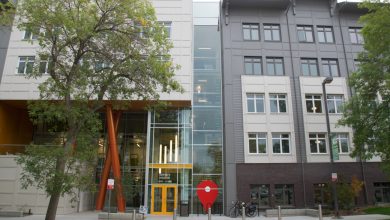 Supplied
SuppliedMost people’s feeds are filled with news about how we are experiencing the highest inflation in almost 40 years, and how it will have disastrous consequences for most working-class people. Rising inflation has resulted in people cancelling their vacation plans and pushing lower-income people closer to poverty in Alberta. But, the news fails to consider the impact inflation will have on college students.
Inflation is when the prices of everyday goods and services rise. This means that people can buy fewer goods and services than before, leading to a decrease in purchasing power.
To some extent, inflation is necessary. It’s a sign of a prosperous and growing economy — wages increase at a faster pace, raising a person’s purchasing power. However, what we are seeing today is unprecedented. The current inflation rate for Canada is estimated to be 7.7 per cent. This is the highest it has been in almost 40 years. Gas prices are also up by 48 per cent compared to the year before.
Inflation is high, and wages simply cannot keep up with the pace. This can lead to a decline in people’s lifestyles, and often push people into poverty.
University students can usually only work in lower-skilled, minimum-wage jobs. A minimum wage job in Alberta pays $15 per hour, and $13 if the student is under 18 years old. Due to classes and other academic commitments, students can often only work 20 hours per week. This translates to approximately $1,200 a month, before taxes.
In Edmonton, the average cost of a two-bedroom apartment is $1,250 per month. This means each student pays approximately $600 per month on rent alone. The remaining money is barely enough to cover other necessities, like food.
Despite Edmonton being one of the most affordable cities in the world, rent is rising. Rent increases, and students paying up to 10 per cent more at the grocery store for some items, will lead to budgets tightening. Students face the disastrous choice of either working more to make ends meet, or relying on charities like food banks for their essential needs. In 2021, the use of food banks had increased by 29.6 per cent since 2019 according to a report from Food Banks Canada.
The most disastrous impact of rising inflation is the possibility of tuition increases. The cost of services and equipment needed is increasing. With a rise in the prices of maintaining services, universities are being forced to raise tuition fees, impacting all students. At the University of Alberta, the tuition for some programs are up by nearly 30 per cent — with some up 100 per cent, putting significant pressure on students.
In 2018, nearly 70 per cent of people with student debt were over the age of 30. This demonstrates how these debts can remain a burden well past your university years. Student debt will likely go up with inflation, as students need larger amounts of money to pursue their education.
While the problems caused due to rampant inflation are evident, it is far more difficult to suggest solutions on how to reduce it. It involves hundreds of ever-changing factors. Rather than reducing inflation, our efforts should focus on how to reduce its impact on students and making sure that basic commodities are affordable for everyone.
The most urgent step needed is to put a freeze is on tuition fee increases. For example, this spring the provincial government of Ontario announced a freeze on tuition fees for all domestic students for the third year in a row. A freeze on tuition fee increases will reduce the burden on students to seek additional funding.
We should strive to increase the amount of funding available to students through loans and grants. As well, colleges should try to provide free alternatives to textbooks. This way, students can access the study material they need without putting a dent in their finances.
We also have to reduce the stigma around using food banks and other charitable organizations when times are tough, so that college students use these services rather than go hungry. Campaigns have to launch to inform students about the availability of these resources. The Campus Food Bank at the U of A strives to eliminate hunger among U of A students by providing free hampers of food. This ensures that there is privacy preservation of each student.
Lastly, students need to learn basic financial literacy. They have to ensure that they have a proper budget. Students can try to buy items in bulk from places like Costco with friends to reduce the cost of shopping. Students should also try to use public transportation using the U-Pass or carpool with their friends rather than driving individually. With the cost of gas increasing, this approach also has the added benefit of being environmentally friendly.
Inflation at this level is unprecedented. But, with proper initiatives taken by everyone, its impact will reduce, especially on students.




